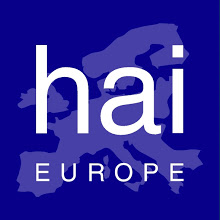 [HAI Europe] Open innovation, open access, crowd-sourcing innovation, innovation prizes…. All buzzwords we often hear in the media, employed by entrepreneurs, government officials or science journalists. The terms have become part of the discourse on innovation and science: companies crowd source their data and innovation, governments are opening up their data to allow for civic participation in innovation, open access publishing is gaining major ground, the US government now mandates it where government grants are involved. Various ideas and arguments play a role here. Moral arguments about social justice and public goods are certainly important, but so are ideas on effectiveness and models of innovation. Although many people have been working on open innovation initiatives for many years, the familiarity of these terms is a pretty recent phenomenon.
[HAI Europe] Open innovation, open access, crowd-sourcing innovation, innovation prizes…. All buzzwords we often hear in the media, employed by entrepreneurs, government officials or science journalists. The terms have become part of the discourse on innovation and science: companies crowd source their data and innovation, governments are opening up their data to allow for civic participation in innovation, open access publishing is gaining major ground, the US government now mandates it where government grants are involved. Various ideas and arguments play a role here. Moral arguments about social justice and public goods are certainly important, but so are ideas on effectiveness and models of innovation. Although many people have been working on open innovation initiatives for many years, the familiarity of these terms is a pretty recent phenomenon.
Why? Because it is urgent, because people are sick and dying, because the current bio-medical innovation system is unjustifiable. The health R&D system excludes a large part of the world population in its business model and does not provide the innovation where its most needed. It focuses on wealthy markets and the pharmaceutical industry can charge monopoly prices on life saving medicines, their markets being protected by intellectual property rights. It is not so much up to companies to change this; they are merely agents limited in their outlook trying to maximize profits. It is up to countries and international governmental organisations to change the incentives and institutional framework for health R&D. Unfortunately, the World Health Organisations is no longer ahead of the curve, it has not been able to do anything substantial with proposals on new open models of innovation.
At the World Health Assembly this week in May 2013, delegates from countries all over the world will come together to discuss an agenda that ranges from discussion on universal health coverage to health in Palestinian territories and WHO Reform. One of the agenda items to be discussed is a Global framework for health R&D – finding a comprehensive solution to the broken research and development system. A system which excludes so many and innovates so little where it is really needed.
There is a wealth of ideas for the architecture and features of such a framework. The best proposals include open innovation approaches and the sharing of knowledge, where medicines are created as global public goods accessible to all. After years of negotiations and struggle, industry influence scandals, reports and country consultations, a special high level expert commission looked at proposals and produced a report. They recommended negotiations for a binding intergovernmental convention to start, they recommended ingraining open knowledge innovation and affordable access to resulting products into any roadmap countries agreed to, and they recommended many more sensible steps.
Sophie Bloemen is an Advisor to Health Action International




